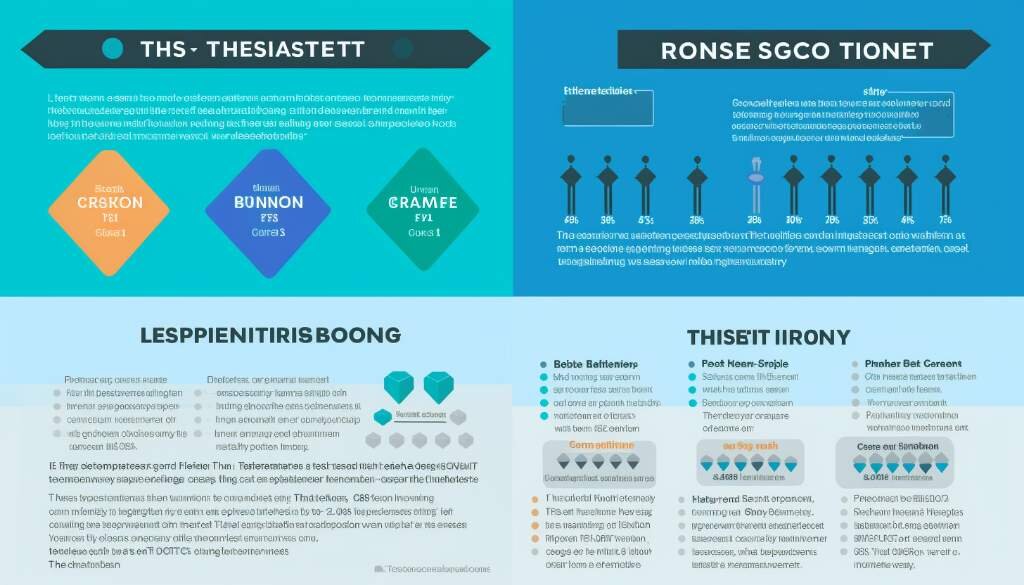
Understanding Testosterone Therapy
Testosterone therapy, also known as androgen replacement therapy, is a treatment method aimed at increasing levels of testosterone in the body. Testosterone is a hormone primarily produced in the testicles and is responsible for various bodily functions and characteristics. Understanding testosterone therapy involves gaining insights into the benefits, risks, and safety considerations associated with this treatment option. Additionally, it is important to explore alternative approaches to boosting testosterone levels and understand how it compares to performance-enhancing steroids.
Within the realm of testosterone therapy, there are specific groups of individuals who can benefit from this treatment. Men with low testosterone levels, also known as hypogonadism, may find relief from symptoms and improvements in overall well-being through testosterone therapy. Furthermore, transgender and gender-diverse adults seeking masculinization may consider testosterone therapy as part of their gender affirmation journey.
Research plays a crucial role in understanding the effectiveness and limitations of testosterone therapy. Recent studies and findings contribute to the evolving knowledge surrounding this treatment option. Clinical practice guidelines provide healthcare professionals with recommendations and best practices for administering testosterone therapy. It is also important to explore the relationship between testosterone therapy and specific medical conditions.
Finally, for a comprehensive understanding of testosterone therapy, it is essential to differentiate it from performance-enhancing steroids. While both involve the use of hormones, they serve different purposes and have distinct risks and benefits.
Ultimately, gaining an understanding of testosterone therapy provides individuals with the knowledge necessary to make informed decisions regarding their health and well-being. In the sections that follow, we will delve into the specific subtopics mentioned above, providing further insights and details to enhance your knowledge in this area.
What is Testosterone Therapy?
Testosterone therapy, also known as androgen replacement therapy, is a medical treatment that aims to increase testosterone levels in the body. Testosterone is a hormone that plays a crucial role in the development and maintenance of male characteristics, such as muscle strength, bone density, and sexual function.
There are various forms of testosterone therapy available, including injections, patches, gels, and pellets. These methods deliver synthetic testosterone into the body, effectively supplementing the naturally produced hormone.
Testosterone therapy is typically prescribed to men who have low testosterone levels, a condition known as hypogonadism. It can also be used in gender-affirming care for transgender individuals seeking masculinization.
The therapy works by restoring testosterone levels within the normal range, which can lead to several benefits for the individual.
Benefits of Testosterone Therapy
Testosterone therapy can provide several benefits for individuals with low testosterone levels or specific medical conditions. Here are some of the key benefits of testosterone therapy:
- Increased Muscle Mass and Strength: Testosterone plays a crucial role in the development and maintenance of muscle mass. Testosterone therapy can help increase muscle mass and strength, making it useful for individuals who have difficulty building or maintaining muscle.
- Improved Bone Density: Low testosterone levels can contribute to decreased bone density and an increased risk of osteoporosis. Testosterone therapy can help improve bone density and reduce the risk of fractures.
- Enhanced Libido and Sexual Function: Testosterone plays a significant role in sexual desire and function. Testosterone therapy can help improve libido, enhance erections, and increase overall sexual satisfaction.
- Improved Mood and Energy Levels: Low testosterone levels can often lead to mood swings, fatigue, and a lack of energy. Testosterone therapy can help improve mood, increase energy levels, and reduce feelings of fatigue.
- Reduced Fat Mass: Testosterone therapy can help increase muscle mass while also decreasing fat mass. This can lead to improved body composition and a reduction in overall body fat percentage.
- Increased Cognitive Function: Testosterone plays a role in cognitive function, including memory and concentration. Testosterone therapy may help enhance cognitive function and improve overall mental clarity.
- Improved Cardiovascular Health: Testosterone has been found to have cardioprotective effects and can help improve cardiovascular health. Testosterone therapy can help increase muscle strength, improve lipid profiles, and reduce the risk of cardiovascular diseases.
Risks and Side Effects of Testosterone Therapy
Testosterone therapy can be beneficial for individuals with low testosterone levels, but it is important to also consider the potential risks and side effects. While testosterone therapy can provide numerous benefits, such as increased muscle mass, improved mood, and enhanced sexual function, it is essential to be aware of the potential risks involved.
One of the primary risks of testosterone therapy is the potential for cardiovascular problems. Studies have shown that testosterone therapy may increase the risk of heart attack, stroke, and blood clots. It is crucial for individuals considering testosterone therapy to undergo a thorough evaluation of their cardiovascular health before starting treatment.
Another potential risk of testosterone therapy is the development of prostate problems. Testosterone can stimulate the growth of prostate tissue, which may lead to an enlargement of the prostate gland or an increased risk of prostate cancer. Regular prostate screenings and monitoring are necessary to detect any potential issues.
In addition to cardiovascular and prostate risks, testosterone therapy can also have side effects. These side effects may include acne, oily skin, hair loss, fluid retention, and increased red blood cell production. It is essential for individuals undergoing testosterone therapy to be aware of these potential side effects and discuss them with their healthcare provider.
Furthermore, testosterone therapy can affect fertility. Testosterone supplementation can suppress the production of sperm, leading to a decrease in fertility. It is crucial for individuals who still desire to conceive children to discuss fertility preservation options with their healthcare provider before starting testosterone therapy.
It is also important to note that testosterone therapy may interact with other medications and conditions. Individuals with a history of hormone-sensitive cancers, sleep apnea, or severe urinary symptoms should exercise caution and discuss the potential risks with their healthcare provider before initiating treatment.
In summary, while testosterone therapy can provide significant benefits, it is crucial to understand the potential risks and side effects associated with treatment. Close monitoring, regular check-ups, and open communication with a healthcare provider are essential to ensure the safety and efficacy of testosterone therapy.
Is Testosterone Therapy Safe?
When considering testosterone therapy, one common concern is whether it is safe. Testosterone therapy is generally considered safe when properly prescribed and monitored by a healthcare professional. However, as with any medical treatment, there are potential risks and side effects that should be taken into account.
One of the primary concerns with testosterone therapy is the potential for cardiovascular risk. Research has shown an increased risk of heart attacks and strokes in some men receiving testosterone therapy. This is particularly true for older men and those with pre-existing cardiovascular conditions. Healthcare providers should thoroughly assess a patient's cardiovascular health before initiating testosterone therapy and monitor them closely during treatment.
Another concern is the potential for prostate issues. Testosterone therapy may cause the prostate gland to enlarge, leading to urinary symptoms such as increased frequency or difficulty urinating. It is important for healthcare providers to regularly screen for prostate cancer and monitor prostate-specific antigen (PSA) levels in individuals undergoing testosterone therapy.
Testosterone therapy can also affect fertility. It can suppress sperm production and decrease testicular size. For men who wish to maintain fertility, alternative treatments or approaches may be recommended.
Other possible side effects of testosterone therapy include acne, oily skin, increased red blood cell count, and sleep apnea. It is essential to discuss these potential side effects with a healthcare provider to weigh the benefits against the risks.
Overall, while testosterone therapy can provide numerous benefits for individuals with low testosterone levels or specific medical conditions, it is crucial for healthcare providers to carefully evaluate each patient's unique circumstances and closely monitor their response to treatment. Open communication, regular check-ups, and ongoing assessment of risks and benefits are essential in ensuring the safety and effectiveness of testosterone therapy.
Alternative Approaches to Boosting Testosterone
Alternative approaches to boosting testosterone can be explored by individuals who are looking for natural ways to increase their testosterone levels. While testosterone therapy is a common medical treatment, there are alternative methods that may help enhance testosterone production in the body without the need for medication. These approaches include:
- Optimizing diet and nutrition: Consuming a healthy, balanced diet that includes essential nutrients such as proteins, healthy fats, and micronutrients is crucial for testosterone production. Foods rich in zinc, vitamin D, and magnesium can help support testosterone levels. Additionally, reducing the consumption of processed foods, refined sugars, and alcohol can have a positive impact on hormone balance.
- Regular exercise and weightlifting: Engaging in regular physical activity, including weightlifting and resistance training, is known to stimulate testosterone production. Strength training exercises that target large muscle groups are particularly effective in boosting testosterone levels. However, it's essential to maintain a proper balance between exercise and recovery, as excessive exercise can have the opposite effect and decrease testosterone levels.
- Adequate sleep: Getting enough high-quality sleep is crucial for hormone regulation, including testosterone production. Lack of sleep or poor sleep quality can disrupt hormone levels and lead to decreased testosterone levels. Aim for 7-9 hours of uninterrupted sleep every night to optimize testosterone production.
- Stress management: Chronic stress has been linked to decreased testosterone levels. Implementing stress-reducing techniques such as meditation, yoga, deep breathing exercises, and engaging in activities that bring joy and relaxation can help manage stress and support healthy testosterone levels.
- Weight management: Maintaining a healthy weight is important for optimal hormone balance. Obesity and excess body fat have been associated with decreased testosterone levels. Losing excess weight through a combination of healthy eating and regular exercise can help improve testosterone levels.
- Natural testosterone-boosting supplements: Some individuals may consider using natural supplements to support testosterone production. It's important to consult with a healthcare professional before starting any supplementation to ensure safety and effectiveness.

Who Can Benefit from Testosterone Therapy?
Testosterone therapy can be beneficial for several different groups of individuals. It is commonly used to address low testosterone levels, a condition known as hypogonadism, in men. Additionally, transgender and gender-diverse adults seeking masculinization may also benefit from testosterone therapy. In this section, we will explore each of these groups in more detail.
The first group that can benefit from testosterone therapy is men with low testosterone levels. Low testosterone, also known as hypogonadism, can cause a range of symptoms including fatigue, decreased libido, mood changes, and reduced muscle mass. Testosterone therapy can help alleviate these symptoms and improve overall well-being.
Another group that may benefit from testosterone therapy is transgender and gender-diverse adults seeking masculinization. For individuals who identify as male but were assigned female at birth, testosterone therapy can help develop masculine features such as facial hair growth, deepening of the voice, and increased muscle mass.
In the following sub-sections, we will delve deeper into each of these groups and discuss the specific benefits and considerations of testosterone therapy for each.
Men with Low Testosterone Levels
Men with low testosterone levels can benefit from testosterone therapy, which is a medical treatment aimed at increasing the levels of testosterone in the body. Testosterone is a hormone that is primarily responsible for the development and maintenance of male sexual characteristics, as well as the regulation of various bodily functions.
Low testosterone levels, also known as hypogonadism, can occur due to various reasons such as aging, certain medical conditions, and lifestyle factors. Symptoms of low testosterone levels may include reduced sex drive, erectile dysfunction, fatigue, depression, decreased muscle mass, and increased body fat.
Testosterone therapy can help to alleviate these symptoms and improve overall well-being. It can be administered in different forms including injections, topical gels, patches, and pellets. The treatment aims to restore testosterone levels within a normal range.
Before starting testosterone therapy, a healthcare professional will conduct a thorough evaluation, including blood tests to measure testosterone levels. This helps to determine if low testosterone levels are the cause of the symptoms and if testosterone therapy is appropriate.
Men who have been diagnosed with low testosterone levels and are experiencing symptoms may find relief and improvement in their quality of life with testosterone therapy. It is important to note that testosterone therapy should only be used under the guidance of a qualified healthcare professional, as improper use or dosage can have adverse effects.
Hypogonadism and Testosterone Therapy
Hypogonadism is a condition characterized by low testosterone levels in the body. Testosterone therapy is a common treatment option for individuals with hypogonadism, as it helps to restore testosterone levels to a normal range.
Hypogonadism can be classified into two types: primary hypogonadism and secondary hypogonadism. Primary hypogonadism occurs when there is a problem with the testicles, leading to reduced testosterone production. Secondary hypogonadism, on the other hand, occurs when there is a problem with the pituitary gland or hypothalamus, which affects the production of testosterone.
Testosterone therapy can effectively address the symptoms of hypogonadism and improve overall wellbeing. Some of the benefits of testosterone therapy for individuals with hypogonadism include:
- Increased energy levels: Testosterone therapy can help improve energy levels and combat fatigue commonly associated with low testosterone.
- Improved sexual function: Low testosterone levels can lead to reduced libido and erectile dysfunction. Testosterone therapy can help enhance sexual function and improve sexual desire.
- Increase in muscle mass and bone density: Testosterone plays a crucial role in maintaining muscle mass and bone density. Testosterone therapy can help increase muscle mass and improve bone health.
- Improved mood and cognitive function: Low testosterone levels can contribute to mood swings, irritability, and cognitive difficulties. Testosterone therapy can help improve mood, reduce irritability, and enhance cognitive function.
While testosterone therapy can offer significant benefits, it is important to note that there are potential risks and side effects associated with this treatment. Some of the potential risks include:
- Prostate issues: Testosterone therapy may increase the risk of prostate enlargement or prostate cancer in some individuals.
- Fluid retention: Testosterone therapy can cause fluid retention, leading to swelling in the ankles and feet.
- Acne and skin reactions: Some individuals may experience acne breakouts or skin reactions as a side effect of testosterone therapy.
Before starting testosterone therapy, it is essential to consult with a healthcare professional who can assess your condition and determine if testosterone therapy is suitable for you. They will consider your medical history, perform the necessary tests, and monitor your progress throughout the treatment.
Overall, testosterone therapy can be a beneficial treatment option for individuals with hypogonadism, helping to alleviate the symptoms and improve quality of life. However, it is crucial to work closely with a healthcare professional to ensure safe and effective use of testosterone therapy.
Transgender and Gender-Diverse Adults Seeking Masculinization
Transgender and gender-diverse adults seeking masculinization can benefit from testosterone therapy. Testosterone therapy involves the use of testosterone to increase the levels of this hormone in the body, leading to the development of masculine characteristics. This treatment approach is commonly used by individuals who identify as transgender men or non-binary individuals seeking a more masculine appearance and physical attributes.
Undergoing testosterone therapy can result in various changes in the body, including:
- Deepening of the voice
- Growth of facial and body hair
- Increased muscle mass and strength
- Changes in fat distribution
- Clitoromegaly (enlargement of the clitoris)
- Cessation of menstruation
It is important for individuals considering testosterone therapy to consult a healthcare professional who specializes in transgender healthcare or an endocrinologist experienced in hormone therapy for transgender individuals. These healthcare professionals can assess the individual's medical history, perform necessary tests, and closely monitor their hormone levels and overall health throughout the treatment process.
Testosterone therapy for transgender and gender-diverse adults seeking masculinization usually involves the use of testosterone medications such as testosterone cypionate, testosterone enanthate, or testosterone gel. The dosage and administration frequency are determined based on an individual's goals, overall health, and hormone levels.
It is essential to note that testosterone therapy is a long-term commitment, as the effects of treatment are generally irreversible. Once masculinizing changes occur, they are generally permanent. Therefore, it is crucial for individuals to thoroughly consider the potential effects and align them with their desired goals. In addition, ongoing hormone monitoring and regular check-ups are necessary to ensure the therapy is safe and effective.
Alongside testosterone therapy, individuals seeking masculinization may also engage in other gender-affirming interventions, such as undergoing chest masculinization surgery or working with a speech therapist for voice training. These additional approaches can contribute to a more comprehensive gender affirmation process.
In conclusion, transgender and gender-diverse adults seeking masculinization can benefit from testosterone therapy. This treatment approach, when properly managed and monitored by healthcare professionals, can help individuals achieve the desired physical changes aligning with their gender identity. It is vital for individuals to receive comprehensive care and support throughout the treatment process, ensuring the effectiveness and safety of testosterone therapy.

Research on Testosterone Therapy
Research on Testosterone Therapy involves the investigation and analysis of the effects, benefits, risks, and applications of testosterone replacement treatments. This field of study aims to gather scientific evidence to support the use of testosterone therapy in various medical conditions.
In this section, we will explore recent studies and findings related to testosterone therapy. We will also discuss the clinical practice guidelines that healthcare professionals follow when prescribing testosterone therapy. Additionally, we will delve into the relationship between testosterone therapy and certain medical conditions.
Furthermore, we will explore the comparisons between testosterone therapy and performance-enhancing steroids. This will help shed light on the differences between legitimate medical use and illicit use of testosterone for enhancing athletic performance.
Lastly, we will provide information on gender affirming testosterone therapy, which is an important aspect of healthcare programs for transgender individuals seeking masculinization.
Recent Studies and Findings
Recent studies and findings play a crucial role in advancing our understanding of testosterone therapy and its potential benefits and risks. Scientists and researchers constantly uncover new information that sheds light on various aspects of this treatment. Let's explore some of the recent studies and findings in the field of testosterone therapy:
- Effectiveness of Testosterone Therapy: A study published in the Journal of Clinical Endocrinology & Metabolism found that testosterone therapy can significantly improve sexual function and mood in men with low testosterone levels. The study also highlighted its positive effects on bone density and muscle mass.
- Cardiovascular Risks: Another recent study published in JAMA (Journal of the American Medical Association) raised concerns about the potential cardiovascular risks associated with testosterone therapy. The study suggested an increased risk of heart attack and stroke among older men undergoing this treatment. It emphasized the importance of careful monitoring and individualized therapy.
- Cognitive Function: Research conducted at the University of Southern California showed that testosterone therapy may have a positive impact on cognitive function in older men. The study found improvements in memory, spatial ability, and verbal fluency among participants receiving testosterone treatment.
These recent studies and findings provide valuable insights into the effectiveness and potential risks of testosterone therapy. However, it is important to note that further research is needed to fully understand the long-term effects and to develop comprehensive guidelines for safe and effective testosterone therapy.
Clinical Practice Guidelines
Clinical practice guidelines play a crucial role in guiding healthcare professionals in their decision-making process regarding the use of testosterone therapy. These guidelines are developed based on extensive research, expert opinions, and best practices in the field. They aim to provide standardized recommendations for the safe and optimal use of testosterone therapy in various clinical scenarios.
One of the most well-known sets of clinical practice guidelines is the Endocrine Society Clinical Practice Guidelines on testosterone therapy. These guidelines provide evidence-based recommendations for the diagnosis, treatment, and monitoring of testosterone deficiency in adult men. They outline the appropriate indications for testosterone therapy and help healthcare providers make informed decisions.
The Endocrine Society guidelines recommend testosterone therapy for adult men with Low Testosterone Levels (also known as hypogonadism) who are experiencing symptoms such as fatigue, decreased libido, erectile dysfunction, or depression. The guidelines also specify that testosterone therapy should only be initiated after confirming low testosterone levels through blood tests and ruling out other possible causes of symptoms.
In addition to the Endocrine Society guidelines, other professional organizations also provide clinical practice guidelines on testosterone therapy. For example, the American Urological Association (AUA) and the American Association of Clinical Endocrinologists (AACE) have their own guidelines that contribute to the overall body of knowledge on this topic. These guidelines generally align with the recommendations put forth by the Endocrine Society.
It is important to note that clinical practice guidelines are regularly updated as new evidence emerges. As a result, healthcare providers should stay informed about the most recent guidelines and adapt their practice accordingly. These guidelines represent the current consensus and best practices, and they help ensure that patients receive appropriate and evidence-based care.
Testosterone Therapy and Medical Conditions
Testosterone therapy has been studied extensively to explore its effects on various medical conditions. This sub-section provides an overview of the research findings and the potential use of testosterone therapy in treating these conditions.
1. Cardiovascular Health: Research suggests that testosterone therapy may have a positive impact on cardiovascular health. Low testosterone levels have been associated with an increased risk of cardiovascular disease, including coronary artery disease and heart failure. Testosterone therapy may improve symptoms, such as chest pain or angina, in individuals with coronary artery disease. It may also have a beneficial effect on blood pressure, cholesterol levels, and insulin sensitivity.
2. Metabolic Syndrome: Metabolic syndrome is a cluster of conditions that includes high blood pressure, high blood sugar, excess body fat around the waist, and abnormal cholesterol levels. Some studies indicate that testosterone therapy may help reduce the risk factors associated with metabolic syndrome. It may improve insulin resistance and aid in weight loss, leading to a decrease in waist circumference and improvements in blood sugar levels.
3. Osteoporosis: Testosterone plays a crucial role in bone health, and low levels of testosterone are associated with an increased risk of osteoporosis and fractures. Testosterone therapy can help increase bone density and reduce the risk of fractures in men with osteoporosis. It may also be beneficial for postmenopausal women with osteoporosis, but more research is needed in this area.
4. Depression and Mood Disorders: Testosterone deficiency has been linked to an increased risk of depression and mood disorders in both men and women. Some studies suggest that testosterone therapy may improve mood, reduce symptoms of depression, and increase overall well-being. It may also enhance cognitive function and improve quality of life in individuals with depression.
5. Sexual Dysfunction: Testosterone plays a crucial role in sexual function, and low testosterone levels can contribute to sexual dysfunction, including decreased libido, erectile dysfunction, and reduced sexual satisfaction. Testosterone therapy can be effective in improving sexual function and libido in individuals with low testosterone levels. However, its effectiveness may vary depending on the underlying causes of sexual dysfunction.
It's important to note that testosterone therapy may not be suitable or effective for everyone with these medical conditions. The decision to undergo testosterone therapy should be made in consultation with a healthcare professional, taking into consideration individual health factors and potential risks.

Testosterone Therapy vs. Performance-Enhancing Steroids
Testosterone therapy and performance-enhancing steroids are two distinct approaches that involve the use of hormones to enhance athletic performance. While both involve the administration of testosterone, there are crucial differences between the two.
Testosterone therapy, also known as testosterone replacement therapy (TRT), is a medical treatment primarily aimed at restoring testosterone levels in individuals with low testosterone or hypogonadism. It is prescribed by doctors and administered under medical supervision to address clinical symptoms associated with low testosterone levels, such as fatigue, decreased libido, and muscle loss.
On the other hand, performance-enhancing steroids, also known as anabolic-androgenic steroids (AAS), are synthetic variations of testosterone that are often used illegally by athletes and bodybuilders to increase muscle mass, strength, and athletic performance beyond natural limits. They are commonly abused and can have serious health consequences.
It is important to note that testosterone therapy is a legitimate medical treatment whereas the use of performance-enhancing steroids is illegal and unethical in competitive sports. Testosterone therapy is based on the principle of restoring testosterone levels to within a normal range, while performance-enhancing steroid use involves supraphysiological doses that can have numerous negative effects on the body.
Some key differences between testosterone therapy and performance-enhancing steroids include:
- Medical Supervision: Testosterone therapy is overseen by healthcare professionals and is prescribed based on individual medical needs. In contrast, performance-enhancing steroid use is often self-administered without proper medical guidance, leading to potential health risks.
- Legal and Ethical Status: Testosterone therapy is a legal medical treatment when prescribed by a healthcare professional. Performance-enhancing steroid use, on the other hand, is considered illegal and is banned in most competitive sports due to its unfair advantage and potential health hazards.
- Dosage and Monitoring: Testosterone therapy involves carefully monitoring and adjusting dosage levels to ensure testosterone levels are within a normal range. Performance-enhancing steroid use often involves high doses well beyond what the body naturally produces, leading to hormonal imbalances and health complications.
- Physical and Psychological Risks: Testosterone therapy, when used as prescribed, carries minimal risks and is generally safe. Performance-enhancing steroid use can lead to numerous physical and psychological side effects, including liver damage, cardiovascular problems, infertility, mood swings, and aggression.
It is crucial to understand the stark differences between testosterone therapy and performance-enhancing steroids. Testosterone therapy should only be pursued under the guidance of a qualified healthcare professional to address legitimate medical conditions, while the use of performance-enhancing steroids should be avoided due to its illegal and potentially harmful nature.

Information on Gender Affirming Testosterone Therapy
Gender Affirming Testosterone Therapy, also known as hormone replacement therapy (HRT), is a medical treatment that involves the use of testosterone to help affirm and align an individual's gender identity with their physiological characteristics. This therapy is primarily used for transgender and gender-diverse adults who desire masculinization.
In this section, we will explore various aspects of Gender Affirming Testosterone Therapy, including its benefits, risks, and considerations. We will also touch upon the topic of gender affirming health programs available for transgender individuals.
Gender Affirming Health Programs for Transgender Individuals
Gender affirming health programs are designed to provide comprehensive healthcare services to transgender individuals seeking hormonal therapy, including testosterone therapy. These programs recognize the unique healthcare needs of transgender individuals and aim to support their journey towards gender affirmation.
Gender affirming health programs typically include the following components:
- Medical Evaluation: Before initiating testosterone therapy, transgender individuals undergo a thorough medical evaluation to assess their overall health and determine their eligibility for hormone therapy. This evaluation may include a review of medical history, physical examinations, and laboratory tests to check hormone levels and monitor any potential health risks.
- Hormone Therapy Administration: Gender affirming health programs provide guidance and administration of testosterone therapy. This may involve the use of injectable testosterone or other forms such as transdermal patches or gels. Healthcare professionals closely monitor individuals during the therapy to ensure proper dosing and address any concerns or complications that may arise.
- Education and Counseling: Gender affirming health programs offer education and counseling services to transgender individuals considering testosterone therapy. This includes information on the potential effects of hormone therapy, expected timelines for changes, and strategies for managing any side effects or emotional challenges that may arise.
- Regular Monitoring and Follow-up: Transgender individuals on testosterone therapy are typically scheduled for regular check-ups to monitor their hormone levels, overall health, and any potential side effects. These follow-up appointments provide an opportunity for healthcare professionals to adjust the treatment plan as needed and address any concerns or questions the individual may have.
- Referrals to Additional Services: Gender affirming health programs often have a network of healthcare providers and resources to offer comprehensive care to transgender individuals. This may include referrals to mental health professionals, support groups, and other specialized services that can assist with various aspects of their transition.
It's important to note that gender affirming health programs vary in their specific offerings and may be tailored to meet the unique needs of each individual. Accessing these programs ensures transgender individuals receive appropriate medical guidance and support throughout their gender affirmation journey.








